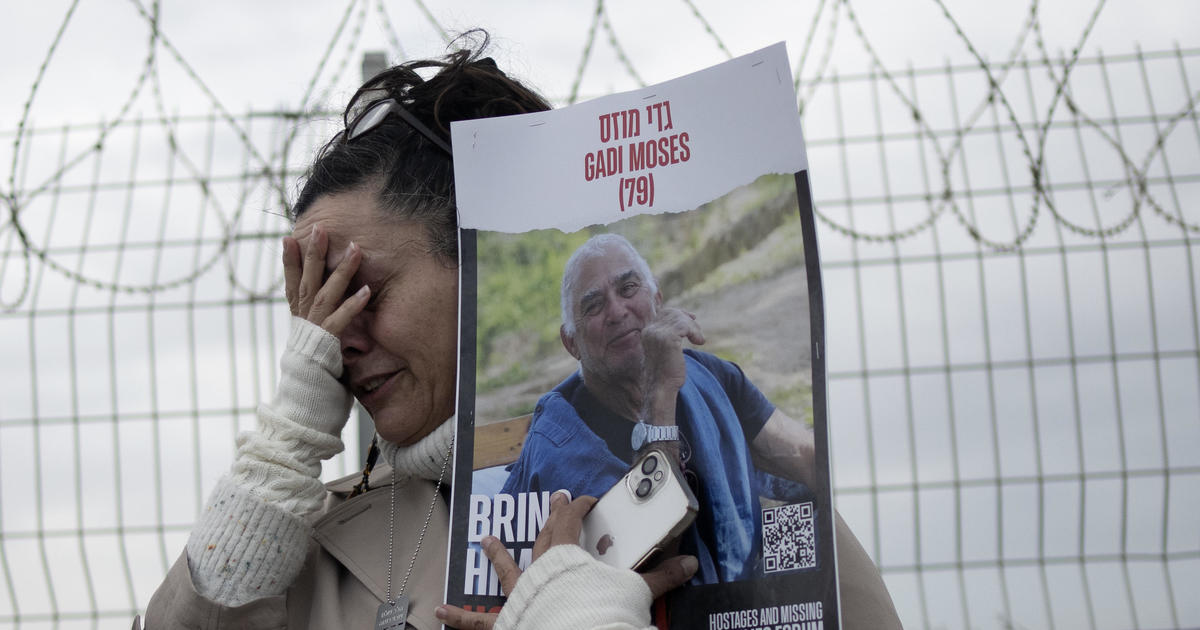The upcoming Rosh Hashanah, a significant Jewish holiday, holds a bittersweet significance for Efrat Machikawa and many other families in southern Israel. While the holiday is typically celebrated with joyous family gatherings and traditional feasts, this year’s celebration is overshadowed by the ongoing ordeal of hostages held captive in Gaza following the October 7th Hamas attacks. The pain of loss and the desperate yearning for the return of loved ones cast a long shadow over the festivities, transforming a time of celebration into one of agonizing uncertainty and grief. This narrative follows Machikawa’s journey of hope, resilience, and unwavering determination in her relentless pursuit to bring her uncle, and the other hostages, home. Her experience represents the broader collective struggle of many families in Israel coping with the enduring consequences of this devastating event. The intensity of her emotional journey encapsulates the resilience of the human spirit in the face of unimaginable suffering.
The Scars of October 7th
The Devastation and Loss
The October 7th Hamas attacks left an indelible mark on southern Israel, leaving a trail of destruction and grief in their wake. Efrat Machikawa’s family was directly impacted, experiencing immense loss. Six family members were either killed or taken hostage from their home in Kibbutz Nir Oz. This horrific event not only shattered their family unit but also deeply wounded their sense of security and normalcy. The attack’s brutal reality and devastating consequences have irrevocably altered their lives. The vivid memories of that day remain painfully fresh in their minds. The holiday preparations were somber in stark contrast to the joyful gatherings of years past. The vacant chairs at the table, representing absent loved ones, served as a powerful reminder of their enduring pain and profound loss.
The Long Year of Waiting
The year that followed the attack has been described by Machikawa as “one long day.” The pain and uncertainty of not knowing the fate of her uncle, Gadi Moses, remains a constant burden. The release of other family members has brought a measure of relief, but it has also heightened the agonizing wait for Gadi’s return. The physical wounds from the abductions have started to heal, but the emotional wounds are proving to be far more resilient, and the hope of reunion for those awaiting family members remains a powerful beacon. The agonizing wait has stretched their emotional endurance and their capacity for hope. The lack of closure leaves many in a constant state of waiting, forever changed by the violence of that one day and the aftermath.
A Relentless Pursuit for Reunion
The tireless Advocate
Since the initial attacks, Machikawa has dedicated her life to securing the release of her uncle and the other hostages. She has embarked on an unrelenting campaign, tirelessly advocating for her uncle’s release and the release of the other hostages held in Gaza. This has entailed countless meetings and appeals to Israeli officials and foreign leaders, lobbying for international pressure on Prime Minister Netanyahu. Her commitment demonstrates unwavering dedication to her family’s plight, with no room for doubt that she will continue her quest until her uncle is returned safely. She is not merely seeking the return of a relative; her tireless campaign exemplifies a broader collective plea for the return of hostages held in Gaza.
Navigating Political and International Pressures
Machikawa’s advocacy has led her to confront significant political obstacles. She voices her discontent with what she perceives as inadequate action from the Israeli government. Her frank critique reflects a deep frustration with the perceived lack of urgency and sufficient diplomatic efforts. Despite her criticism, she maintains some confidence and hope in the individuals responsible for the negotiations, stating her faith and gratitude towards the efforts of negotiators. Yet, the burden of maintaining national and international attention for the release of the hostages falls on the families of these prisoners, highlighting her immense contribution toward her personal plight and that of many families similar to hers.
Hope Amidst Despair
Maintaining Hope and Resilience
Despite the profound pain and the seemingly insurmountable challenges, Machikawa clings steadfastly to hope. This tenacious spirit, shared by other families enduring similar struggles, remains the lifeline sustaining them through their unimaginable ordeal. Their fortitude exemplifies the human capacity for perseverance even under conditions of extreme adversity, serving as a testament to resilience, to hope and to human resolve in the face of tragedy. The uncertainty and despair continue to persist, yet their hope refuses to fade.
The Power of Hope as a Driving Force
For Efrat Machikawa, hope serves as an essential motivator. This enduring faith is what fuels her tireless campaigning, reinforcing the hope of reunion and providing strength for her own family, and all those awaiting the return of their loved ones. Hope remains their most treasured and essential asset throughout this heartbreaking ordeal. The profound impact of this relentless pursuit for hope serves as an inspiration. Their hope fuels their unwavering dedication, serving as an unwavering constant despite the odds stacked against their success. This underscores the powerful transformative influence hope possesses in times of desperation.
Takeaway Points:
- The October 7th Hamas attacks had a devastating impact on Southern Israel, causing widespread destruction and profound loss of life.
- Families of hostages are grappling with immense grief, uncertainty, and the long wait for the safe return of their loved ones.
- Efrat Machikawa’s tireless advocacy for the release of her uncle and other hostages exemplifies the resilience and determination of those affected by the attacks.
- Despite significant challenges, Machikawa and other families maintain unwavering hope for the safe return of their loved ones, highlighting the remarkable power of hope in the face of adversity.




